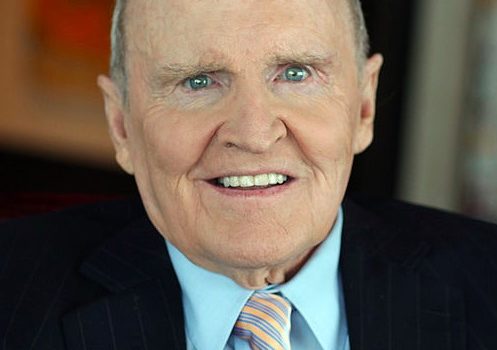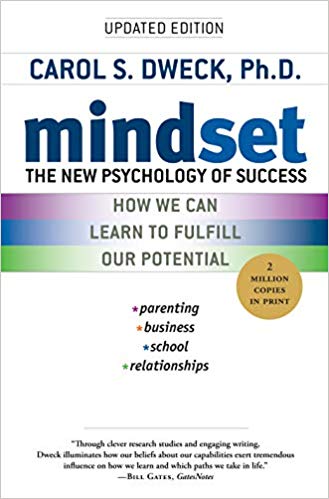

This article is an excerpt from the Shortform summary of "Mindset" by Carol Dweck. Shortform has the world's best summaries of books you should be reading.
Like this article? Sign up for a free trial here .
How did Jack Welch of GE become one of the most successful CEOs in the world? What can we learn from Jack Welch’s growth mindset?
Jack Welch was the chairman and CEO of General Electric from 1981 to 2001. His growth mindset helped increase the value of GE by 4,000%.
We’ll cover the three lessons about leadership we can learn from Jack Welch of General Electric, and how these lessons are all tied to having a growth mindset.
Jack Welch’s Leadership Lesson #1
Lesson #1: Ability to grow may be a more important indicator for future achievement than current success. As CEO of General Electric, Jack Welch chose executives based on their capacity to develop. Jack Welch of GE had a growth mindset. This is in contrast to leaders with a fixed mindset.
One reason people with a fixed mindset feel they have to be perfect is that they see every test or evaluation as a permanent measure of their ability.
By definition, you can’t predict potential, if it’s understood as the capacity to develop over time with effort and training. It’s impossible to be certain of how far anyone can go with effort and training. For example, many of artist Paul Cezanne’s early paintings were terrible. He needed time and effort to develop. Jack Welch of GE knew this.
People with fixed-mindset do in fact believe you can measure someone’s ability and determine their potential. But those who’ve tried to do that have been wrong repeatedly. Examples of people who were told they lacked potential include Charles Darwin, Marcel Proust, Ray Charles, Elvis Presley, Lucille Ball, and Jackson Pollock.
Jack Welch’s Leadership Lesson #2
Lesson #2: Successful people learn from failure.
People with fixed mindsets may blame others or make excuses. Every time he lost a match, John McEnroe had an excuse — he had a backache, he overtrained, he ate before the match, or he was a victim of unfair expectations. In contrast, when growth-minded CEO Jack Welch of General Electric made poor decisions leading to poor results, he personally phoned top colleagues to deliver the news and take the blame. This is an indicator of Jack Welch’s leadership abilities.
As UCLA basketball coach John Wooden noted, you can’t learn from your failures if you deny them by blaming someone else.
Mindset drives how people define and cope with failure. For people with a fixed mindset, failure is an identity that they fear and try to avoid, rather than something that happens. This is something Jack Welch of GE worked actively to avoid.
For example, as a child, author Carol Dweck refused to participate in spelling and French competitions, although she excelled at those subjects, because she was afraid of losing and being defined as a failure. Golfer Ernie Els felt the same way. When he won a tournament for the first time in five years, he explained what had been at stake: he said that if he had lost again, he’d have become a different person in his mind — a permanent loser. Similarly, every spring, thousands of young people feel they’re failures when they get rejection letters from their top choices for college.
Failure is hard for growth-minded people like Jack Welch too, but they don’t let it define them. They see it as something to confront and learn from. For example, Minnesota Viking Jim Marshall didn’t let a spectacular failure define him. He grabbed a loose ball and ran into the wrong end zone, scoring for the opposing team, the 49ers, on national television. Rather than sitting out the rest of the game and feeling ashamed, he went back in and played well during the second half, contributing to a win for his team. After the game, he continued to use the experience in a positive way, answering letters and speaking to groups about coping with failure, while he also worked to improve as a player.
Jack Welch’s Leadership Lesson #3
Lesson #3: Teamwork and growth are more important than ego.
Jack Welch took over as CEO of General Electric in 1980, and in twenty years its value increased from $14 billion to $490 billion. He was one of the most admired CEOs of the era, but unlike many superstars, he was self-effacing and made a point of listening and nurturing.
Jack Welch often visited factories and assembly lines to listen to front-line employees. He emphasized teamwork. In his autobiography, he noted that he disliked using “I” when speaking because most of what he’d done in his life had been accomplished in working with others. He felt others made him look better and made the work enjoyable.
At several earlier points in his career, Jack Welch had been arrogant or overly confident, which led to mistakes that he learned from. As a young engineer at GE, he caused a chemical explosion that blew off the roof. He expected a reprimand and punishment, but instead received support and understanding. This made him realize the importance of helping good employees overcome failures.
While in the running with several other candidates for CEO, Jack Welch emphasized his ability to grow. When he got the job, he set up channels for feedback, asked questions about what needed changing, and discouraged elitism. He hired for mindset rather than talent and preached the importance of growth, mentoring, and teamwork over individual accomplishment.
———End of Preview———

Like what you just read? Read the rest of the world's best summary of "Mindset" at Shortform . Learn the book's critical concepts in 20 minutes or less .
Here's what you'll find in our full Mindset summary :
- The difference between a growth and a fixed mindset
- How a fixed mindset keeps you back throughout your life: education, relationships, and career
- The 7 key ways to build a growth mindset for yourself






